SUMMARY
This is AI generated summarization, which may have errors. For context, always refer to the full article.
![[OPINION] The Duterte legacy: Confidential funds](https://www.rappler.com/tachyon/2023/09/duterte-legacy-confidential-funds-september-21-2023.jpg)
“Wala tayong pera.” “Mahirap ang Pilipinas.”
I was already a lawyer when I stopped believing in this fairy tale. Back then, we were busy with the Supreme Court case to declare the Priority Development Assistance Fund (PDAF) unconstitutional. We went through the General Appropriation Act (GAA), National Expenditure Program (NEP) and other documents from the ‘90s up to the 2000s. The files almost filled a room. What we saw in them blew our minds: years of largesse with billions sunk into “soft projects” and other questionable items.
Now I know better. This country has the money. What it lacks is the will to spend it wisely. And there’s no greater showcase of this than PDAF’s successor: the so-called “confidential funds.”
For years, requests for Confidential Intelligence Funds (CIF) didn’t make headlines (PDAF/CDF were the stars then). This is largely because the amounts didn’t reach the astonishing magnitudes we are dealing with today. As originally envisioned, CIFs were grounded on sound operational requirements, especially by the armed forces. However, the confidential funds dominating today’s headline are a far cry from their origins.
This trend started when then-president Rodrigo Duterte came along. Unbound by the sense of fiscal propriety that limited his predecessors, his team bloated the lump sum funds of the Office of the President by the billions.
In his last year in office alone, Duterte funneled P4.5 billion in “confidential” or “intelligence” funds into the Office of the President. This was while a pandemic was raging. While our doctors were drowning in COVID-19 cases, Duterte was swimming in lump sum funds.
The confidential funds of today are aberrations not just because they are discretionary lump sum funds but also because they deviate from normal processes of transparency and accountability.
Requirement of transparency
We need to remember where public funds come from. A government sets taxes and forces its citizens pay them under pain of punishment. It’s forced exaction from every Filipino. In exchange, the government promises to use this money diligently. This explains the constitutional requirement of transparency.
It also explains the budget process, which revolves around the President’s “grocery list” (the NEP) for the coming year. Congress makes sure the “items” in that list are legitimate. This is to make sure that government officials aren’t just buying yachts. Every agency is accountable to Congress. Every office needs to explain why and how they will be spending the money. Even the Supreme Court is not exempt.
When it comes to “confidential funds,” however, the Commission on Audit (COA) has limited visibility on whether they’ve been used properly. The Ombudsman himself said recently that officers using these funds don’t need to show receipts. When it concerns the Armed Forces’ covert operations, it’s understandable why. When it concerns a few millions, it becomes a delicate balancing act.
But when it’s about giving P500 million to a civilian office that by constitutional definition is a “spare tire,” that is quite literally unheard of.
The allure of spending millions without having to deal with COA or to show receipts is spreading. The Philippine Charity Sweepstakes Office has one, allegedly to “fight illegal gambling.” The Department of Education wants some too. (To fight the communists plaguing our schools). Perhaps this led Senator Raffy Tulfo to ask (tongue-in-check, it seems) whether the Department on Migrant Workers (DMW) should get them too so it can fight “illegal recruiters.” He added, “[‘Yung] iba nga diyan, daan-daang milyon, ‘di ako kumikibo. Kailangan siguro para maging patas tayo sa lahat, bigyan din natin ‘tong DMW.”
In an interview, Senator Imee Marcos raised a good point about confidential and intelligence functions, “Leave it to the experts.” The tragedy, however, lies in the depressing state of the agencies who have these functions. The Philippine Coast Guard which is literally on the frontlines against invaders has a paltry P10 million. The Philippine Navy isn’t doing any better at P39.75 million. With the threat we face in the WPS, our professional soldiers are left with scraps because the bounty is diverted somewhere else.
Who can stop it?
Watching the budget hearings, one can’t help but commiserate with those who are tasked to defend it. An entire government’s spending program is on the line. And the mission is to shepherd the expenditure program through hell or high water. Unfortunately, that includes the confidential funds. It’s a thankless task. Because regardless of individual preferences, the Department of Budget and Management’s (DBM) bureaucrats are bound by marching orders. Much like the DBM was when it had to defend the PDAF during the time of the late president Benigno Aquino III. Back then, as with today, they’re left to grapple with the fall-out created by the demands of politicians.
There are only two people who can put an end to this situation. One is the President, who can signal to his team that enough blood has been shed defending this hill. The other is the Vice President, who can demonstrate political wisdom by withdrawing her requests seeing how it has dominated the national conversation. The administration’s initiatives are in danger of being eroded by the chatter. Sometimes, unity requires sacrifice.
The merits of tree-planting, Libreng Sakay, and yes even “fighting” terrorists are undisputable. That’s why there’s no reason to insist that these initiatives of the Vice President be covered by confidential funds. They can be funded but, under the normal process – through line-item appropriations. The traditional agencies that perform these functions can assist in fleshing these out.
Just like extrajudicial killings, this addiction to humongous “confidential funds” is another Duterte legacy we must discard. Casually mouthing “flexibility,” “security” and “threats” when you are dealing with billions of taxpayers’ money can justify discretionary spending for anything under the sun.
This institutionalized largesse is yet another example of how the Duterte administration strained the Constitution. This is one way the Marcos government can show the world that it is different. – Rappler.com
John Molo practices commercial litigation. He teaches Constitutional Law in the University of the Philippines. He has argued several landmark cases before the Supreme Court, including Belgica v Ochoa, which nullified the PDAF. He is a trustee of the Philippine Bar Association, and chairperson of the IBP Journal.
1 comment
How does this make you feel?
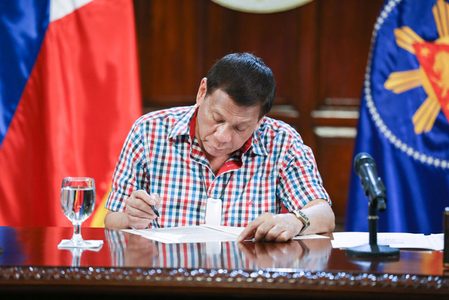
![[In This Economy] Why Marcos is getting high on unprogrammed funds](https://www.rappler.com/tachyon/2024/07/TL-marcos-program-funds-july-19-2024.jpg?resize=257%2C257&crop=265px%2C0px%2C720px%2C720px)
![[In This Economy] Is the Marcos government unlawfully dipping into PhilHealth funds?](https://www.rappler.com/tachyon/2024/07/marcos-government-philhealth-funds-july-12-2024.jpg?resize=257%2C257&crop=425px%2C0px%2C1080px%2C1080px)
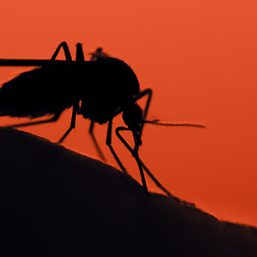

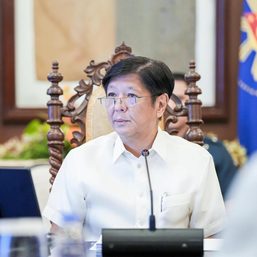

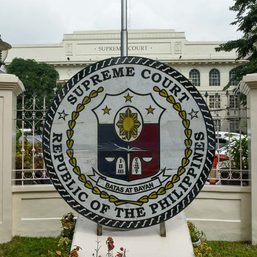
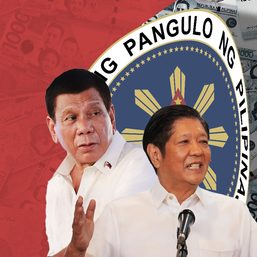
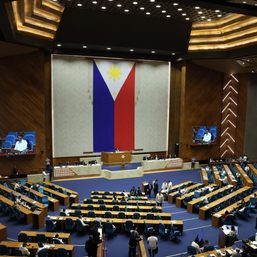
![[OPINION] Unpaid care work by women is a public concern](https://www.rappler.com/tachyon/2024/07/20240725-unpaid-care-work-public-concern.jpg?resize=257%2C257&crop_strategy=attention)

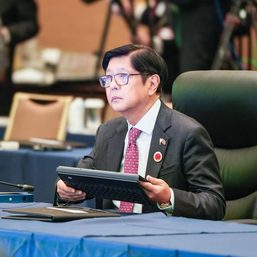

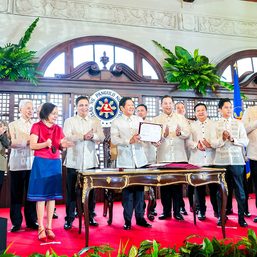
![[OPINION] Rodrigo Duterte and his ‘unconditional love’ for China](https://www.rappler.com/tachyon/2024/04/rodrigo-duterte-xi-jinping-august-2019.jpeg?resize=257%2C257&crop=91px%2C0px%2C900px%2C900px)



![[The Slingshot] Lito Patay’s 4 hours and 38 minutes of infamy](https://www.rappler.com/tachyon/2024/07/Lito-Patay-4-hours-infamy-July-19-2024.jpg?resize=257%2C257&crop=233px%2C0px%2C720px%2C720px)




![[Rappler’s Best] Knowing when to leave](https://www.rappler.com/tachyon/2024/07/biden-sara-gfx.jpg?resize=257%2C257&crop_strategy=attention)
More likely, the Marcos Jr. administration will just follow the CIF legacy of his immediate predecessor Former President Rodrigo “Digong”Duterte. And more likely, even have more! As for VP Sara Duterte: what would you expect from a daughter who almost think exactly like her father? The key word is not “different” but rather these two words: “same” and “more”!